Civil Liberties, Criminalizing Dissent, Human Rights, Iraq War, Supreme Court, Truth to Power
Podcast: Play in new window | Download
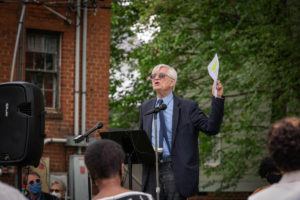
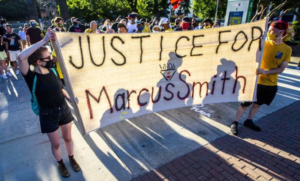
Attorney Flint Taylor Update On The Marcus Smith Case In Greensboro, NC
Police in America kill more than 1500 citizens a year. That’s more than three a day and they’re disproportionately Black. Police killed more than 1500 people the year before the murder of George Floyd and in the year since his murder they’ve killed another 1500.
The latest outrageous case has come to the national fore in Greensboro, North Carolina where eight white cops killed Marcus Smith two years ago by hogtying him causing him to suffocate to death . Now they are being sued and they’re trying to cover it up and trying to silence the Smith family’s attorney Flint Taylor, drive him out of the state, and sanction him with heavy financial penalties.
So instead of banning hogtying, settling the case with the Smith family and issuing an apology, they are trying to silence the messenger.
Hogtying can be lethal. It’s done by handcuffing the victim behind his back, shackling his feet, and then tying the handcuffs to the feet bending him over backwards, chest first, in the street. Marcus Smith’s died of asphyxiation within a minute.
On September 8, 2018 Marcus Smith was suffering from a mental health crisis. He was brutally hogtied by the Greensboro North Carolina police officers. The family’s civil rights case is being litigated by Chicago Peoples Law Office attorneys Flint Taylor and Ben Elson, and by Greensboro lawyer Graham Holt. It is worthy of national attention.
The cops’ lawyers have been paid more than $1 million of taxpayer money to date to defend the case. They have escalated their attacks on the Smith family and are seeking to suppress all the damaging evidence that has come to light during the pretrial discovery in the case.
Guest – Flint Taylor of the Peoples Law Office. Taylor is a nationally recognized civil rights attorney. He represented the family of Fred Hampton demonstrating that the Chicago Police Department and the FBI were responsible for the assassination of the young Black Panther leader. He’s written the book “The Killing Machine: Racism and Police Violence in Chicago”. He is one of the editors of the “Police Misconduct Law Reporter.
His recent publication The Torture Machine: Racism And Police Violence In Chicago.
—-

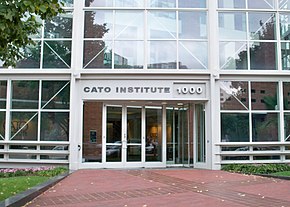
Phyllis Bennis: The Influence Of Think Tanks And IPS
With the growth of globalization on the heels of the Cold War, entities called Think Tanks grew rapidly during the late 1980s. Now, there are nearly 2,000 think tanks in the United States alone. Not surprisingly, more than 400 are located in the nation’s capital, with ready access to key policymakers. These entities play an outsized role in shaping the world we live in.
From national defense and technology, to social policy and economics, think tanks perform in-depth research on a range of topics. Some think tanks advocate for change by using this research and analytical reports to influence public opinion and help decision makers create policy agendas. It follows that many think tanks align along party lines. Funding for think tanks usually comes from endowments, government contracts, private donations, and sales of their reports.
While many think tanks are nonprofit organizations, some especially high-profile ideological ones advocate solutions that benefit their corporate donors. Often they are criticized for crossing the line between research and lobbying. Think tanks are classified according to their sources of funding and intended customers. Some think tanks, such as the Rand Corporation, receive direct government assistance; most others are funded by private individuals or corporate donors.
Guest – Phyllis Bennis is a fellow of the Institute for Policy Studies, where she is she is the director of the New Internationalism Project and works on anti-war, US foreign policy and Palestinian rights issues. She has worked as an informal adviser to several key UN officials on Palestinian issues. Her books including Calling the Shots: How Washington Dominates Today’s UN, and Understanding the Palestinian-Israeli Conflict.

———————————-
Civil Liberties, Human Rights, Political Prisoner, Supreme Court, Surveillance, Truth to Power
Podcast: Play in new window | Download
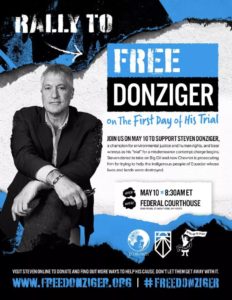
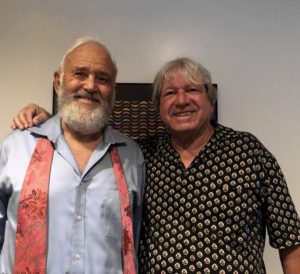
Steven Donziger Trial: Continued Coverage
As we continue our coverage of human rights lawyer Steve Donziger’s criminal contempt trial, we look back to the origins of case he brought against Chevron Oil. They go back to the late 1960s when Texaco first discovered oil in part of an Amazon rainforest in northeastern Ecuador. The US oil company went on to lord over decades of environmental destruction on a monolithic scale, dumping two or three Exxon Valdez’s worth of oil and toxic byproducts and despoiling an area the size of Rhode Island. Since then, the indigenous tribes in the area have been victims of by cancer and other illnesses caused by the pollution, they say. In 1993, two years after graduating from Harvard Law School, Donziger joined a lawsuit seeking to force Texaco to clean up the mess. In 2000 Chevron purchased Texaco. They spent upward of $1 billion in legal fees defending this case.
Donziger has broad support from celebrities, including Alec Baldwin and Susan Sarandon; dozens of Nobel laureates; and thousands of lawyers and law students globally. A handful of sympathetic Democratic lawmakers, including U.S. Rep. Alexandria Ocasio-Cortez, have written a letter to U.S. Attorney General Merrick Garland, asking him to look into the case. More than 200 attorneys with the International Association of Democratic Lawyers have filed a judicial complaint asking for Judge Kaplan to be taken off the bench.
Conversely, Chevron claims Donziger’s supporters are being duped by a con man. A few conservative outlets have reiterated that narrative. One National Review headline criticized the “Lefty Media” for championing the cause of “History’s Champion Scammer.”
DonzigerDefense.com
ChevronToxico.com
ChevronInEcuador.com
Guest – Attorney Martin Garbus, one of three pro bono lawyers representing Donziger in an attempt to get his law license restored. Garbus has a long and distinguished career as a civil rights and first amendment litigator.
—-
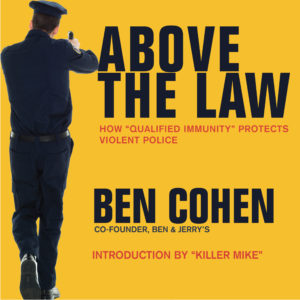
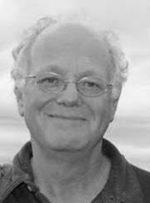
Above The Law: How Qualified Immunity Protects Violent Police
The 1967 judicially created doctrine of qualified immunity has been so broadly interpreted that it acts as a shield for policeman in all but the rarest of circumstances. Only when the exact same abusive behavior of a cop has already been deemed unconstitutional by a court in the exact same jurisdiction can a victim succeed in a civil lawsuit against an abusive police officer. A plantiff must show that government officials violated clearly established law to receive damages for harm.
The plaintiff wins only if a prior court found an official liable under a nearly identical fact pattern. This standard is virtually impossible to meet and the protections promised under section 1983 civil rights act are therefore largely symbolic.
Guest – Ben Cohen – cofounder and former CEO of Ben & Jerry’s Ice Cream. He is the founder of a variety of advocacy organizations and the author of several books including his latest titled Above The Law: How Qualified Immunity Protects Violent Police. Ben and his partner Jerry Greenfield are currently helping to lead the campaign to end qualified immunity.
—-


USPS Announces Closing Of 19 Mail Processing Plants
The US Postal Service advertises the official standard of delivering first-class mail — a typical letter with a 55-cent stamp—within “1-3 business days.” The News Department at WGBH Radio in Boston conducted its own test to see if this still holds true. News reporters and producers sent nearly 100 letters from different places in the metro area at various hours on the same day to their pick of correspondents in 38 states, creating a random sample. The letters were addressed to residents of large cities, suburbs and small towns. The Postal Service flunked the test. A little more than half of the letters arrived within the three-day window.
Slower delivery is just the tip of the Post Office’s problems. Things are going from bad to worse. The Postal Service issued a report titled Delivering for America calling for a reorganization that highlights something called shared sacrifice.
Many consider it an austerity plan to cover for de facto privatization. Critics say the plan will slow the mail, raise prices, and cut services. Since the report was published, the Postal Service announced the closing of 18 mail processing plants that will take place before November. Based on recent history, closing these plants will slow the mail and guarantee there will be problems with mail delivery during the peak season.
Guest – Chuck Zlatkin, legislative director of the New York Metro Area Postal Union.
—————————-
Civil Liberties, Habeas Corpus, Human Rights, Supreme Court, Truth to Power
Podcast: Play in new window | Download
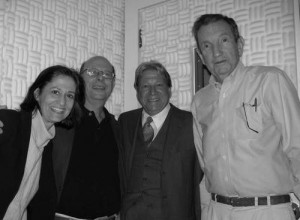
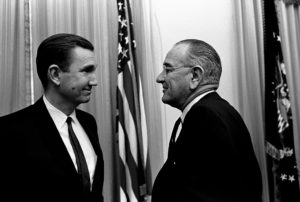
Remembering Attorney Ramsey Clark
Our friend and colleague Attorney Ramsey Clark died in his home in Greenwich Village from complications from a fall last Friday, April 9, 2021. He was 93 years old. He came from a prominent New Deal Texas family. His father Tom Clark had been the Attorney General of United States and then served on the Supreme Court. The Clark family and the Lyndon Johnson family were friends and political allies.
Lyndon Johnson appointed Ramsey Clark to be the US Attorney General. He served in that position for 18 months severely disappointing Johnson who remarked that he thought he was appointing Tom Clark’s son. “I was wrong.“ said Johnson. Clark opposed the death penalty and declared a moratorium on it when he was in office. He opposed wire tapping.
He supported the civil rights movement and helped draft the historic Civil Rights Act of 1964 and 1968 and the Voting Rights Act of 1965. He was a key person empowering federal desegregation orders. At a cabinet meeting he declared his opposition to the war in Vietnam. That was the last cabinet meeting, he told us, that Johnson ever invited him to.
He also disappointed and baffled many on the left when he took up representation of such figures as Shaikh Abdul Rahman, Milosevich and Saddam Hussein. Clark said they deserved competent counsel.
Guest – Attorney Mara Verheyden-Hilliard, with the Partnership for Civil Justice Fund, that is partnering with the newly-formed Center for Protest Law and Litigation, to demand a fully public investigation into law enforcement’s handling of the riot on the Capitol Building on that day that shocked much of the nation.
Guest – Attorney Alan Levine, a law partner of Ramsey Clark’s for five years in the firm Clark, Wulf, and Levine. He worked as an attorney with the New York civil Liberties Union and the Puerto Rican Defense Fund.
Guest – Ralph Nader, one of the nation’s most effective and well-known social critics. He has raised public awareness and increased government and corporate accountability. As a young lawyer in 1965 he made headlines with his book Unsafe at Any Speed, leading to congressional hearings and passage of a series of life-saving auto safety laws in 1966. His example has inspired a generation of consumer advocates, citizen activists and public interest attorneys. Full biography.
Past interviews with Attorney Ramsey Clark
Law and Disorder June 24, 2013
Law and Disorder January 21, 2013

———————————————
CIA Sponsored Terror, Civil Liberties, Crony Capitalism, Habeas Corpus, Human Rights, Political Prisoner, Supreme Court, Surveillance, Truth to Power, War Resister
Podcast: Play in new window | Download
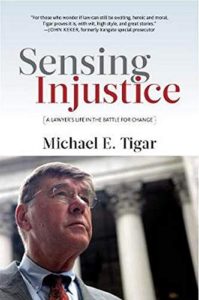
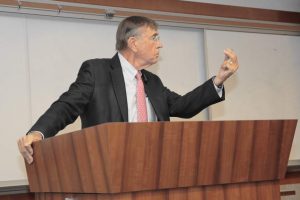
Sensing Injustice: A Lawyer’s Life And The Battle For Change
We are going to spend the entire hour with attorney Michael Tigar to discuss his just published magnificent memoir Sensing Injustice: A Lawyer’s Life And The Battle For Change.
By the time he was 26, Michael Tigar was a legend in legal circles well before he would take on some of the highest profile cases of his generation. In his first US Supreme Court case, at the age of 28, Tigar won a unanimous victory that freed thousands of Vietnam war resistors from prison. Tigar also led the legal team that secured a judgment against the Chilean Pinochet regime for the 1976 murders of dictator Pinochet opponent Orlando Letelier and his colleague Ronnie Moffit in a Washington, DC car bombing.
He then worked with the lawyers who prosecuted Pinochet for torture and genocide. A relentless fighter of injustice, Tigar has been counsel for Angela Davis, Jamil Abdullah Al-Amin (H.Rap Brown). Tigar the Chicago Eight, and leaders of the Black Panther Party, to name only a few. His book is about stories, people stories of injustice, struggle, and sometimes vindication as he put it. Michael Tigar is a magnificent storyteller with a dry wit and a prodigious memory. Monthly Review link to Sensing Injustice
Guest – Constitutional attorney Michael Tigar, professor emeritus from The Washington College of Law and has taught at the University of Texas and Duke University. He has practice before the Supreme Court, arguing his first case when he was 24 years old. Tigar has written or edited more than a dozen of important books including “Law and the Rise of Capitalism.“ He has worked for over 50 years with movements for social change as a human rights lawyer, law professor, and writer. Since 1996 he has practiced law with his wife Jane B. Tigar. Michael Tigar’s blog Tigarbytes.

———————————–
Civil Liberties, Human Rights, Political Prisoner, Prison Industry, Prosecution of the Bush Administration, Supreme Court, Surveillance, Targeting Muslims, Truth to Power, War Resister
Podcast: Play in new window | Download
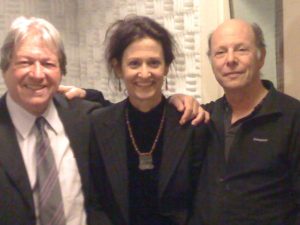
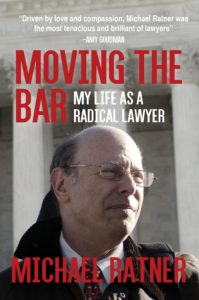
Moving The Bar: My Life As A Radical Lawyer
Michael Ratner’s memoir Moving The Bar: My Life As A Radical Lawyer will be available at OR Books. As listeners know, Michael Ratner was one of the most important civil rights attorneys in our era. He spent his life fighting on behalf of those who state and empire sought to crush, from the leaders of the prison uprising at Attica to Muslim prisoners held in Guantanamo, to Julian Assange.
Michael Ratner (1943–2016) worked for more than four decades at the Center for Constitutional Rights becoming first the Director of Litigation and then the President of what Alexander Cockburn called “a small band of tigerish people.” He was also the President of the National Lawyers Guild. Michae Ratner handled some of the most significant cases in American history. This book tells why and how he did it. His last case, which he worked on until he died, was representing truth-telling whistleblower and now political prisoner Julian Assange, the editor of WikiLeaks. Ratner “moved the bar” by organizing some 600 lawyers to successfully defend habeas corpus, that is, the ancient right of someone accused of a crime to have a lawyer and to be brought before a judge. Michael had a piece of paper taped on the wall next to his desk at the CCR. It read:
Four Key Principles Of Being A Radical Lawyer:
1. Do not refuse to take a case just because it is long odds of winning in court.
2. Use cases to publicize a radical critique of US policy and to promote revolutionary transformation.
3. Combine legal work with political advocacy.
4. Love people.
We hear interviews about Michael Ratner with Chris Hedges’s show On Contact, Attorneys Eleanor Stein, Richard Levy and David Cole.

————————–
Civil Liberties, Criminalizing Dissent, Human Rights, Impeachment, Supreme Court, Truth to Power, War Resister
Podcast: Play in new window | Download
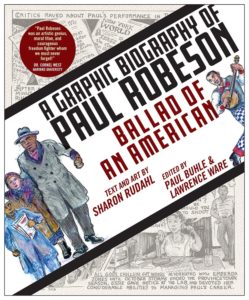
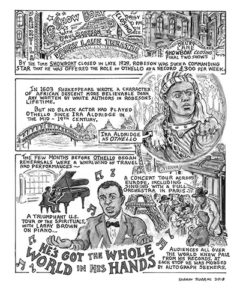
Paul Robeson: Ballad of an American by Sharon Rudahl
Paul Robeson, like John Brown before him and Malcolm X after him, was an American of great courage and great accomplishments. Like John Brown and Malcolm the powers that be, vilified him and attempted to reduce him to obscurity. Robeson was born the son of a slave in Somerville, New Jersey In 1898. At Rutgers University he was a Phi Beta Kappa, graduated at the top of his class, and delivered the valedictorian speech. He won 16 letters in sports; football, baseball, track and field, and basketball. He had a beautiful bass voice and sang in the choir. He briefly played professional football and graduated from Columbia Law school.
He was an outstanding actor performing on both stage and screen in America and England. As a concert performer he traveled the world singing spirituals, labor songs, and folk songs of American Blacks. He was outspoken in support of civil rights, union struggles, anti-colonialism, and asserted himself as a socialist.
Because of this he was repressed by the reactionary forces in America in a period of time after World War II known as McCarthyism. In August 1949, a concert that he was to headline in Peekskill, New York was broken up by fascists. The next year a national concert tour had to be canceled because theaters refused to book him. His passport was taken away. He couldn’t travel. He was told he could have it back if he promised not to “ criticize the treatment of American Negroes in the US which should not be aired abroad.“
He was heard before the house un-American activities committee in 1956 and asked why he didn’t stay in Russia. He replied “because my father was a slave and my people died to build this country and I’m going to stay here.“ His films and recordings were taken out of circulation and he disappeared from textbooks and halls of fame. Of Paul Robeson, Cornell West has said that “he was an artistic genius moral titan and courageous freedom fighter whom we must never forget.“
Guest – Sharon Rudahl, author and artist who recently published graphic biography “Paul Robeson: Ballad of an American.” The book was edited by Paul Buhle and Lawrence Ware. Sharon Rudahl marched with Martin Luther King as a teenager and began her career as a cartoonist with anti-Vietnam war underground newspapers. She was one of the founders of the 1970s era feminist “Wimmen’s Comix.“ She is best known for her graphic biography “Emma Goldman: A Dangerous Woman.“
—-
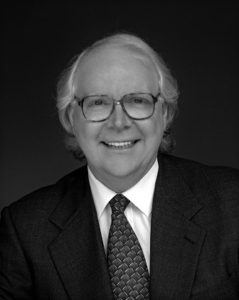
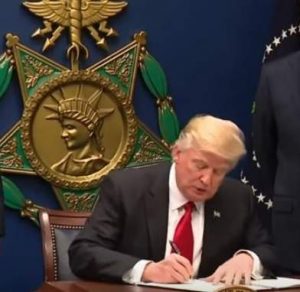
Constitutional Scholar Stephen Rohde On Impeachment
The American people are enmeshed in and victimized by four overlapping, intertwined and perhaps irreversible crises. They are medical, economic, racial, and political. The Covid 19 virus has infected over 25 million people. It has killed at least 430,000 of us and it rages on unchecked. Half the people in the US are poor or near poor. Twenty million or more are unemployed and their numbers are growing. Hunger and homelessness are widespread. Racism has been institutionalized in our country ever since its founding as a white settler colonial state. Politically except for the scattering of a few progressives there really is no party or leadership that represents the interests of the vast majority of our people.
Former president Donald Trump has been impeached by the Democrats in the House and will stand trial in the Senate beginning the week of February 8th.
He received 75 million votes in the 2020 election, more than he received when he won in 2016. Even though he lost last November his power is barely diminished. He will likely be acquitted of the charge of inciting an insurrection on January 6th. With the help of most of the 50 Republican senators the Democrats won’t be able to get the 60 necessary votes to convict him and prevent him from running for president again. Thus he will continue to control the Republican Party.
There is the possibility of his running again that helps keep him as the powerful leader he has become and keeps the Republicans in line, fearful as they are of being primaried and losing their own power and privilege. Only a few Republicans have shown the integrity and courage to oppose this venal, cruel and cunning man.
Guest – Attorney Stephen Rohde is a constitutional scholar, lecturer, writer, political activist and retired civil rights lawyer. He is a founder and Chair of Interfaith Communities United for Justice and Peace, past President of the ACLU of Southern California, and a Past Chair of Bend the Arc: a Jewish Partnership for Justice. He is the author of two books American Words of Freedom: The Words That Define Our Nation and Freedom of Assembly and co-author of Foundations of Freedom: A Living History of Our Bill of Rights. He has written for the Los Angeles Times, Huffington Post, Truthout and American Prospect, and is a regular contributor to the Los Angeles Review of Books.

———————————




















